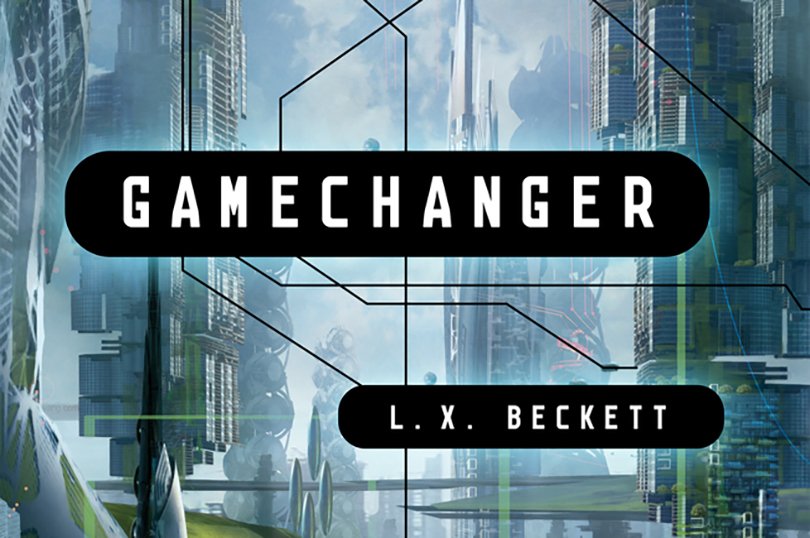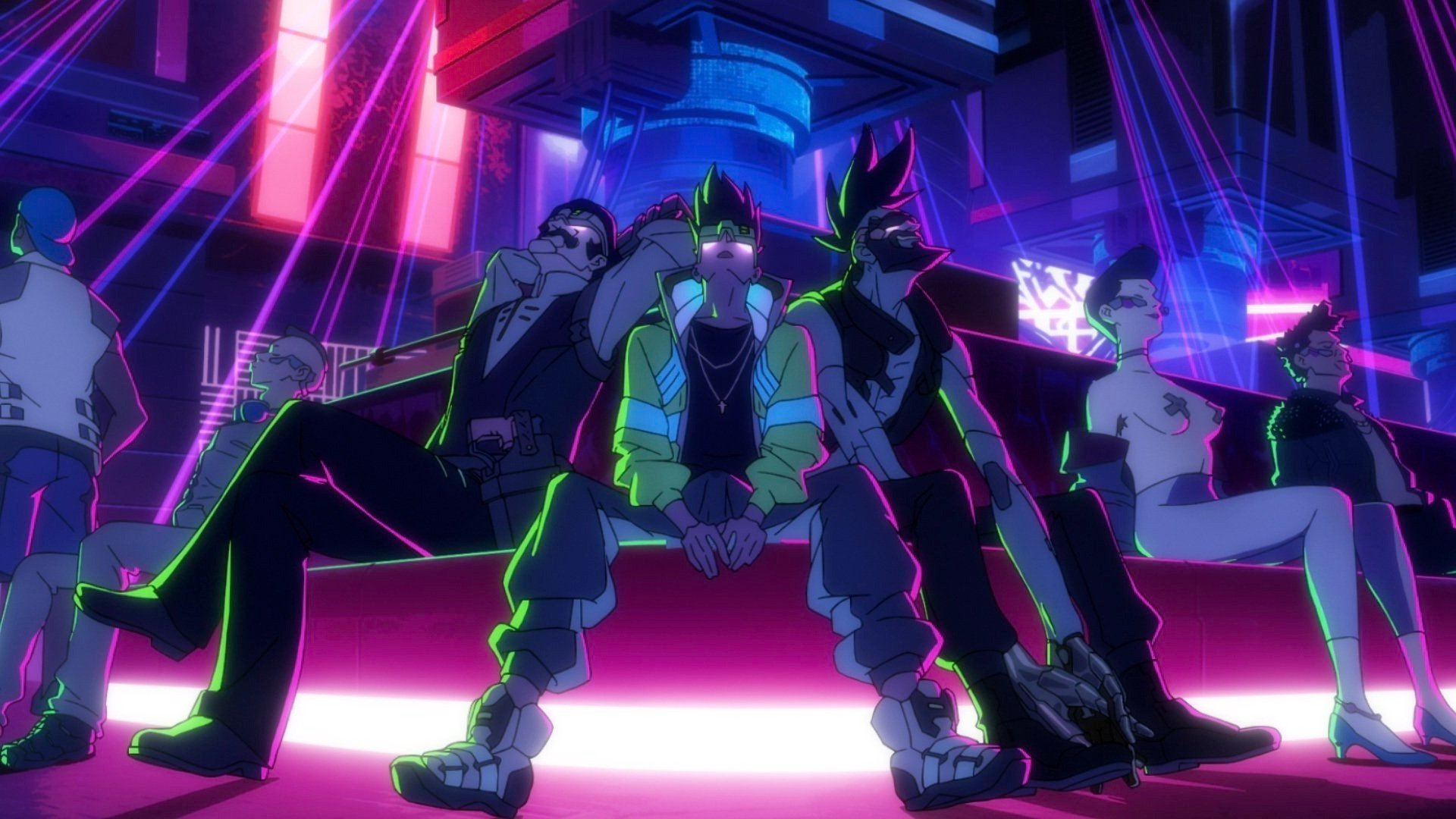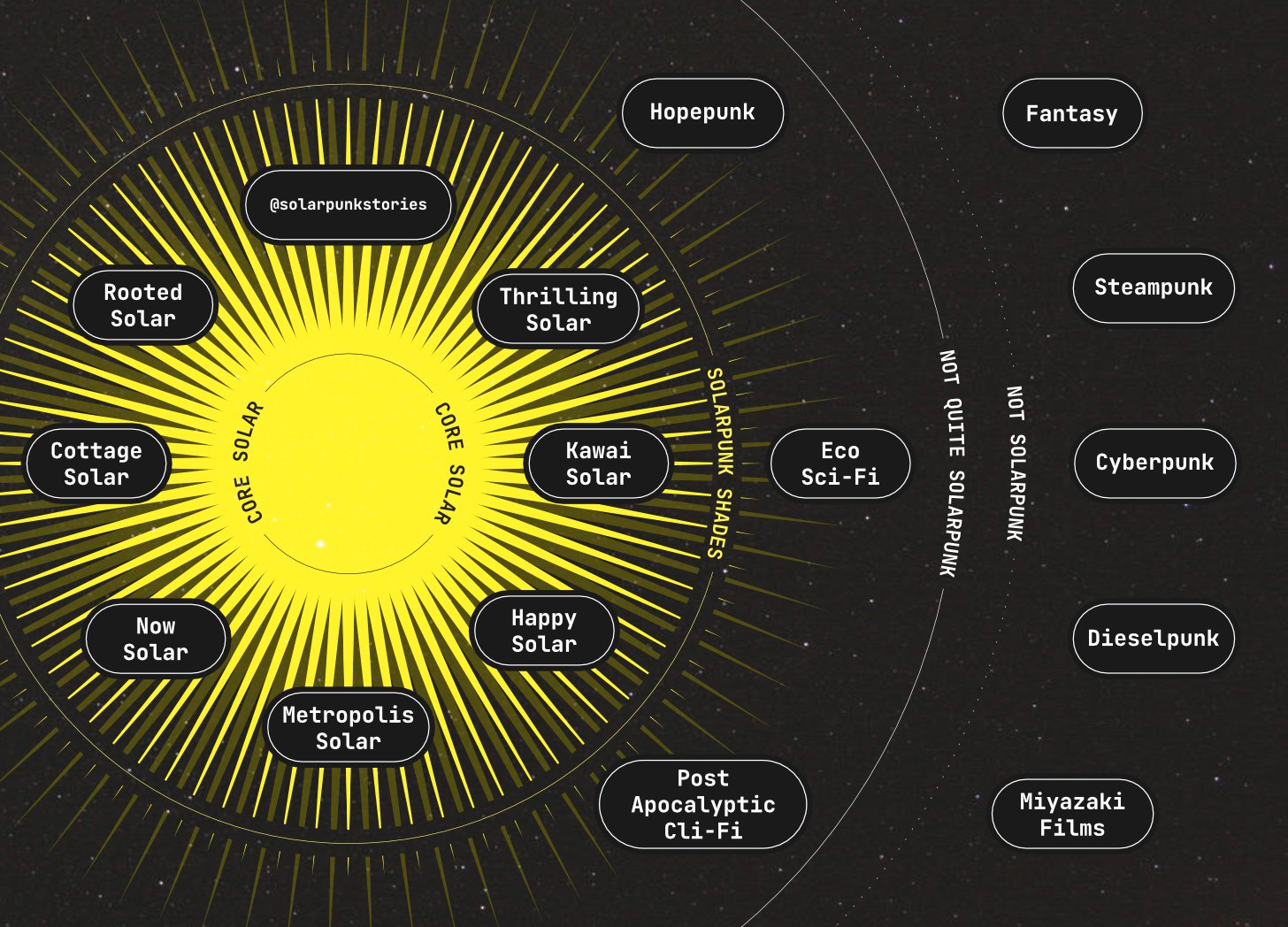By Alastair JR Ball
“Have you read this new solarpunk book?”, I sat up in my chair.
I’d been on what has seemed like a sometimes fruitless quest to find genuinely solarpunk novels.
While there are an increasing amount of art and short fiction that could fairly be described as solarpunk, there have been far fewer book-length stories.
Hearing Gamechanger by L.X. Beckett might be a solarpunk novel I set about reading it.
Author L X Beckett [IMAGE: Uncanny Magazine]
THE PLOT
The novel follows Rubi Whiting as she investigates the case of Luciano Pox, who has fallen foul of the social code of Gamechanger.
Rubi seeks to solve this mystery while planning a grand finale to her former profession as a competitive virtual RPG player and looking after her ageing father.
Virtual words [IMAGE: Ready Player One]
I loved reading this book but is it really solarpunk? Or just another text that has been mislabelled as it? Read on to find out.
ARGUMENTS IN FAVOUR
Gamechanger is set in a more socially just world than our own and its citizens are better custodians of the natural environment. Elements of this are weaved into the story, such as Rubi stopping to weed a communal flowerbed in-between meetings.
Growing green [IMAGE: May Project Gardens]
Like a lot of solarpunk fiction, Gamechanger is not set in a perfect world and there are still social problems.
Some of these are old ones and others are new, created by the political settlement that is rebuilding the environment. For example limits on the number of children people can have causes violent protests from #FreeBreeders.
Nonetheless, Gamechanger presents a more ecologically positive vision of tomorrow. It shows a world where people are working to successfully clean the air, rejuvenate the sea and repair the damage humanity has done to the environment.
Seajuve: Ongoing work to clean up the ocean [IMAGE: "200127 037 Maritime Museum of San Diego - Maersk Transporter Ocean Cleanup Vessel by cultivar413 CC BY 2.0.]
ARGUMENTS AGAINST
The world of Gamechanger is like the ambiguous utopia of Ada Palmer’s Terra Ignota novels. Aspects of it lead us to ask how much more desirable this fictional world really is? Citizens are monitored and assigned points based on whether their actions are considered pro or anti-social.
Ada Palmer Terra Ignota novels Too Like The Lightning, Seven Surrenders and The Will To Battle
Working with people who are struggling to adjust to this new green society gets Rubi points for being pro-social. Speaking out against efforts to rebuild the environment leads to Pox struggling to access services because of his low social score.
Is being constantly monitored good when encouraging people to do things we might think are beneficial to society?
The novel is set several generations in the future where computers, VR, augmented reality and AI are much more advanced than today. As we point out in our manifesto and previous Substack posts, solarpunk can be compatible with advanced technologies like these.
Escaping to virtual worlds [IMAGE Cyberpunk: Edgerunners]
Nonetheless, these types of tech are more commonly thought of as classic cyberpunk tropes. However, this book definitely doesn’t have the high-tech, low-life dynamic of classic cyberpunk novels. It also doesn’t have that genre’s ultra-grim vision of the future.
Is Gamechanger solarpunk?
The SolarPunk Stories sun [IMAGE: Claire Alexis for SolarPunk Stories]
After considering our own shades of solarpunk model, I would argue that though Gamechanger is an edge case, it isn’t solarpunk. This is mainly because of the constant social monitoring and reward/punishment system.
No big brothers in our solarpunk futures [IMAGE: DarkUnknownWarrior Posted in Big Brother (Nineteen Eighty-Four)Makima]
Gamechanger is nowhere near as nightmarish as 1984. Nonetheless, it’s too reminiscent of China’s social credit system for us and all the illiberal overtones that come with that.
For us, such authoritarianism is incompatible with being solarpunk. It might be different if the book made clear that the system had very high levels of democratic participation in deciding how it operates but that’s left disturbingly vague.
A state of surveillance [IMAGE: "Surveillance" by jonathan mcintosh is licensed under CC BY-SA 2.0.]
Of lesser importance, there are also questions as to how much energy such a universal surveillance system would use.
Monitoring everyone's actions sounds like it would demand a lot of power. This is a resource that could otherwise be put into restoring the natural systems of the planet and enhancing human wellbeing in other ways.
To be fair to L.X. Beckett, they’ve never claimed that Gamechanger is a solarpunk novel. They and the book’s publisher refer to it as more of cyberpunk meets Star Trek.
It seems like it’s another case of eco-sci-fi that gets mistakenly called solarpunk as we explored in our deep-dive article.
Our shades of solarpunk star [IMAGE: Claire Alexis for SolarPunk Stories]
GAMECHANGER IS A GREAT READ
As we also said in our deep-dive article, we enjoy texts from genres besides solarpunk. I definitely enjoyed reading Gamechanger. It’s got everything I want in a novel. There are conspiracies, riots and shadowy antagonists.
The characters are complex and relatable. The story is thrilling with plenty of action in both virtual and physical worlds. The sense of peril rises throughout to a breath-taking climax.
A great read [IMAGE: Whereslugo]
There’s a mystery plot, with plenty of action, and some twists that I won't spoil. Suffice to say, they were a genuine surprise and added another dimension to the story, as a good twist should.
Each character and situation is layered with exciting drama that is fun to unpeel, but my favourite thing about the novel is the rich world it is set in.
I would recommend this book to any sci-fi fan even if it isn’t solarpunk. A sequel is also available, which I will read as soon as I can.
Shades of solarpunk tales [IMAGE: Claire Alexis for SolarPunk Stories]
My quest to find a really solarpunk novel goes on.
If you’ve read one that you think meets the definition we describe here, especially a more rooted and thrilling shade of solarpunk please do let us know in the comments below.
See you in the sunshine.
Alastair JR Ball is the Chief Editor of SolarPunk Stories and the co-host of the Moderate Fantasy Violence podcast and editor of the Red Train Blog.













